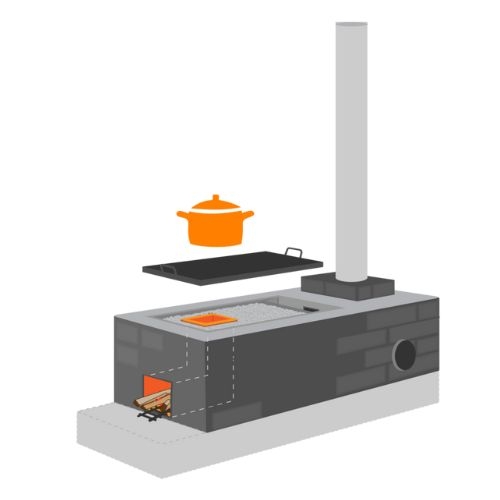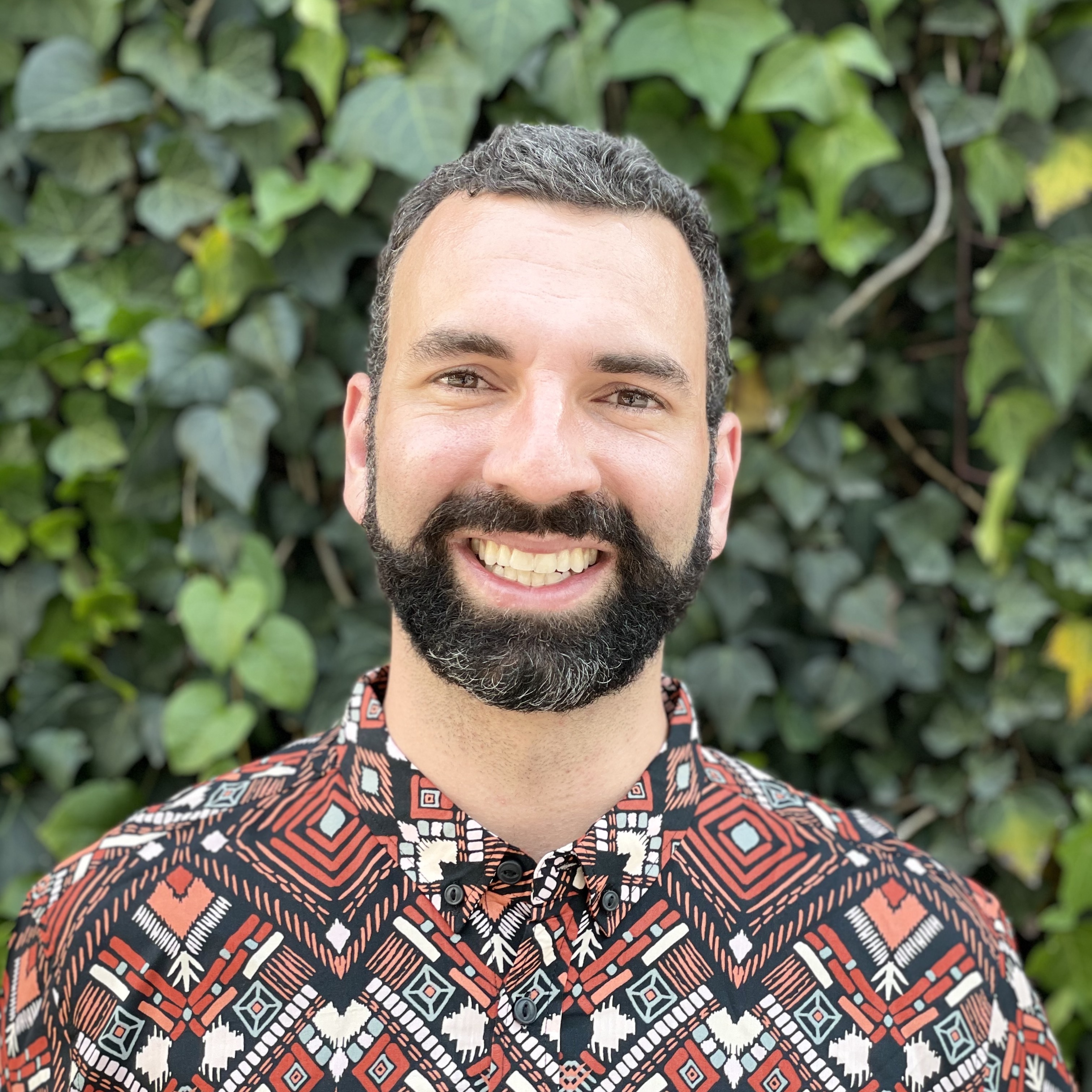XMNR alum challenges the cultural norms of open fire cooking in Latin America
November 1, 2022

By Alex Eaton
The road less traveled is one that I always find to be more exciting and fulfilling to my life goals and mission to help people and to discover the world around me. This approach to life and career and Virginia Tech’s Executive Master of Natural Resources (XMNR) program have prepared me for my current work as Country Director at StoveTeam International in Guatemala.
When I started the XMNR program in 2018, I was a teacher working and living in Almaty, Kazakhstan. I was an outlier as an international student, but excited to learn and participate over Zoom. Over the course of that year, I collaborated with my team virtually across a 12-hour time difference and came across the ocean four times to be present for in-class meetings. For me, the program provided a foundation for problem-solving as it opened my eyes to the comprehensive and wicked definition of sustainability.
After graduating from the XMNR program, I took a year off to explore and found my next home in Central America. I took public transportation and hitchhiked from Tucson, Arizona to Panama City, Panama in hopes to “conocer” (to be acquainted with) the people and places that are frequently in the news. On a budget of $50/day, I managed to revive my Spanish and learn about all of Central America and its challenges in the global theater, and see the environmental problems at hand. I made the decision to apply for jobs in the area that I loved: Antigua, Guatemala, the land of eternal spring and volcanoes.
Tackling the wicked problem of open fire cooking
I started working with StoveTeam International in Guatemala in March of 2020. StoveTeam has been working in Guatemala, Honduras, El Salvador, and Nicaragua since 2013 to empower local people to produce safe, clean-burning cookstoves instead of the traditional indoor, open fire cookstoves.
There are a plethora of reasons why open fire cooking is desired: smoky flavor of food, light in the house, heat for cold nights, and cultural tradition. Trees are plentiful and people love to cook things quickly using this method. However, this often contributes to premature death. Each year, smoke inhalation from indoor, open fire cooking kills more people than malaria and AIDS combined. It is not only a public health issue; CO2 emissions from cooking fires are a major contributor to climate change.
The greatest challenge is changing the cultural norms of open fire cooking. The problem, as stated, is wicked, with no solution besides providing education and clean technologies to reverse years of carbon emissions and deforestation. My intent was to use my knowledge from the XMNR program to tackle this worldwide problem.
Applying XMNR lessons to the field
Central America is known for extreme poverty and disorganization, which makes efforts to solve countrywide problems especially difficult. StoveTeam International hired me as their first full-time employee in the field, to implement the Justa Stove Project and oversee the monitoring and growth of our partners in Guatemala and neighboring countries. I deal with all of the daily challenges of the programming and personnel in Guatemala, and focus on the long-term vision and strategic plan of StoveTeam International.
Implementing clean stove technology in Central America and ensuring adoption would be my main focus, as well as reversing hazards to the environment caused by years of deforestation and excess carbon emissions. I had big shoes to fill as the first staff member in the field, tasked to figure out the outcome of the Guatemalan project with my small team. I collaborated with Oregon-based Mike Hatfield to learn to construct the Justa Stove using the rocket combustion chamber technology called the “Estufa Justa Chapina.” This stove was designed based on user input and cultural desires, and includes a metal griddle that is 16 x 32 inches and two removable burners. This griddle stove became our savior and has been well received in Guatemala due to large family sizes.

The XMNR program prepared me well for the task at hand. At times I am overwhelmed by many problems, including the extreme poverty, or stubbornness of people that seem to want us to leave instead of solving the problem with a stove. Professor Patricia Raun taught me to be animated and full of life each day that I enter into the office, and to motivate my team by positivity and encouragement. Each professor encouraged me and pushed me to excellence in their own way, which has shaped me into the Country Director that I am today.
I’ve taken the leadership lessons from the XMNR program and encouraged my team in the skills of community outreach, trust building, and education, to start and implement wood-burning stove projects throughout the country. This translated into kind smiles, friendly greetings, and a knowledgeable team to explain efficient stove technology and its benefits to community members, and especially the ladies that typically cook. Knowledge is valuable, and when my teammates walk up to a door, they are experts in the field and share stories and experiences to convince people to change their habits to add years onto their lives. While in the XMNR program, I learned to give clear explanations and solutions to my classmates who had not read the same material. We do the same in the field: explain—educate—emit change.
Today’s impact and looking towards the future
To date, my team has successfully constructed 1,500 of these Justa Stoves in Guatemala. Through donations, grants, and fellowships, and by collaborating with local communities, my team has built a functioning Justa Project that empowers communities, overcomes cultural barriers, and is on the forefront of growth.
The past two and a half years since I started with StoveTeam have been a rollercoaster ride, full of adventures. The world is moving towards climate-happy solutions and will need educated professionals. The future is bright for sustainability professionals and XMNR graduates, as there’s always a job for humanitarian work and environmental projects due to irreversible climate change. Personally, I am in it for the long run and excited to make changes and accomplish more with my team of local professionals—our challenge is not easy, but we have the brain cells and resources to figure out the best functioning solution.

Alex is a traveler and humanitarian by nature, and seeks to connect with people around the globe and learn about their cultures. He is a North Carolina native but comes from a diverse background, which makes him feel at home anywhere in the world. He served in Peace Corps Ukraine from 2010 to 2013 as an English Teacher, continued his teaching career for five years in Almaty, Kazakhstan, and thus speaks a handful of languages. He holds an MNR from Virginia Tech and has an affinity for helping others!


